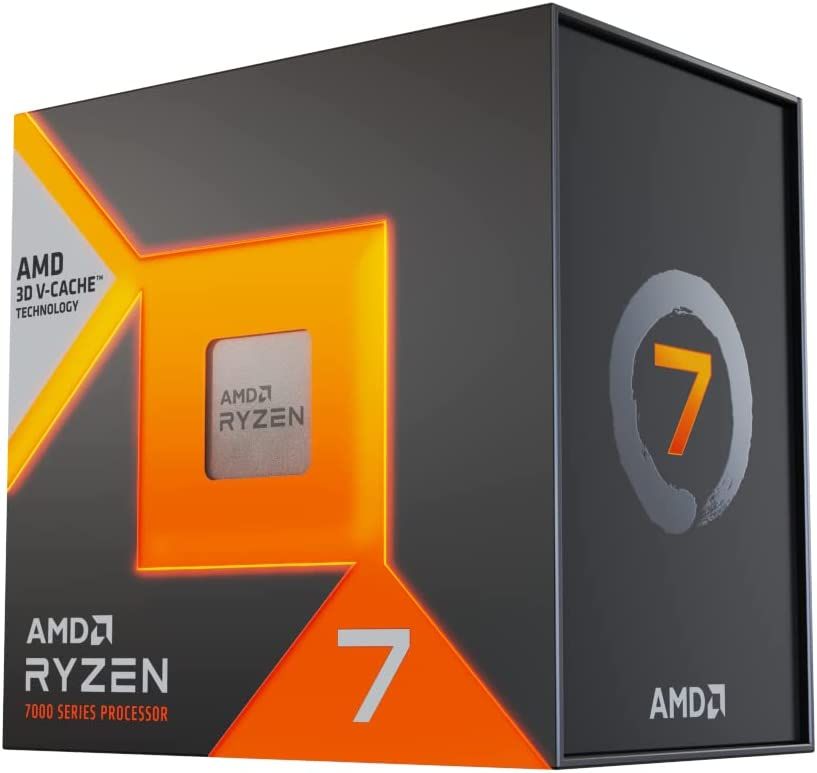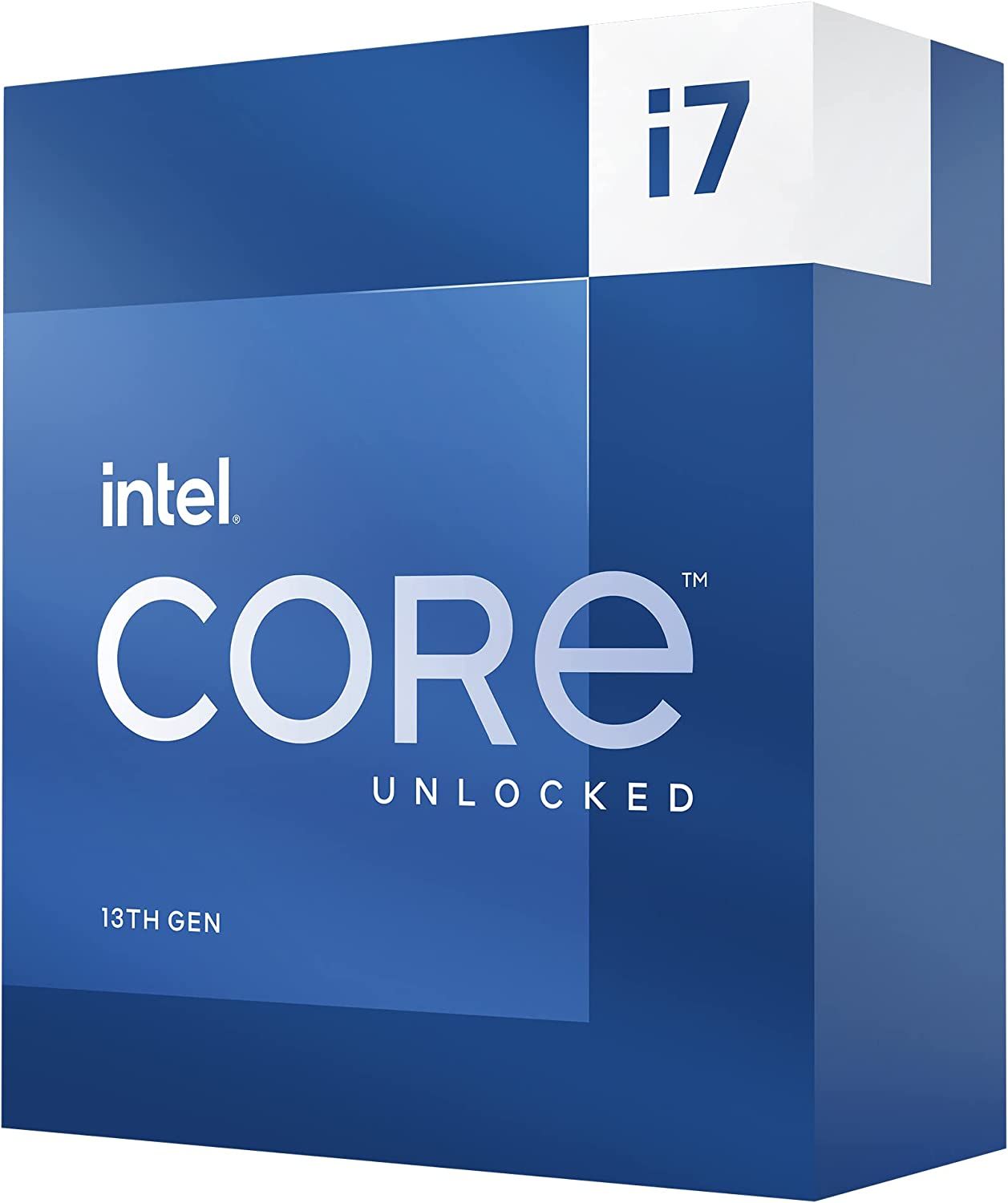As we move to the summer, the competition between Intel & AMD is as tough now as it has ever been between the two semiconductor rivals historically. Both competitors have historically switched their strengths multiple times with them interchangeably offering more efficiency, processing power, gaming performance, and value for money. We currently see a similar switch as Intel's 13th gen CPUs dominated the gaming and desktop performance computing segments with AMD's 7000 series CPUs being relegated to better value for money and performance per watt.
AMD has since hit back with its X3D CPUs that capture the flag at the top of the all-important enthusiast gaming segment that has seen considerable competition in the past few years with Intel going for a high IPC, high clock approach as AMD aims for a more efficiency-centric play backed by its 3D V-Cache since the 5800X3D to balance the odds. The tip of AMD's spear as part of its X3D push is the Ryzen 7 7800X3D which was understandably held back until the Ryzen 9 7950X3D and 7900X3D were snapped up by early adopters with a very good reason: Its simply that good at gaming.
The Ryzen 7 7800X3D directly takes on Intel's highest-end Core i7 and Core i9 offerings for gaming, winning more of its duels than it concedes thanks to its large 96MB L3 cache allowing it to bring superior gaming performance to its octa-core offerings. Intel has not been silent either. It has pushed out the Intel Core i9 13900KS as the first official 6GHz CPU (based on a better-binned model of the Intel Core i9 13900K) in a bid to retain its performance crown and the optics to go with it.
It has also aggressively pushed game bundles alongside AMD's offerings for its 13th gen Rocket Lake-based CPUs to avoid ceding important space in the enthusiast tier to Team Red.
The Intel Core i7 13700K: A Powerful All-Rounder
The Intel Core i7 13700K is Intel's high-end CPU offering as part of its 13th generation Rocket Lake-based desktop processor offerings, powered by a Big.Little 8+8 core configuration of performance cores(P-Cores) and efficiency cores (E-Cores) that work with both Intel's 6XX series (12th gen) and 7XX series (13th gen) motherboards. It does pack a potent punch as part of its 16-core, 24-thread offerings that make it seem like a slightly better clocked and optimized 12th gen Core i9 12900K with the obvious pricing benefits in play.
The Intel Core i7 13700K, while not Intel's fastest chip, follows closely behind as the penultimate offering to the Intel Core i9 13900K thanks to the same amount of P-Cores and marginally slower clock speed on offer which puts it within spitting distance of the 24-core Rocket Lake flagship in most benchmarks, particularly gaming. With excellent single-core clocks and great multicore performance, the 13700K is not a processor to be ignored and if you plan to pair it with a GPU, it might be worth considering its slightly cheaper GPU-less variant on offer, the Intel Core i7 13700KF instead.
Your savings can pay for the massive cooling investments you will have to inevitably make to allow the 13700K to run unhindered or unthrottled in most gaming and productivity use cases; The Core i7 13700K and 13700KF both run considerably hotter than their predecessors and require extremely potent cooling to ensure they can reach peak performance without being throttled due to inadequate cooling.
AMD Ryzen 7 7800X3D: Octa-Core Gaming Ace
AMD's octa-core 3D V-Cache enabled Ryzen 7 7800X3D is the current king of the hill when it comes to gaming and with good reason. It comes with excellent gaming performance that dwarfs even Intel's flagship Core i9 13900K and AMD's own 16-core 3D V-Cache-enabled 7950X3D with power efficiency that would make most performance CPUs blush in 2023, pushing just above 50W on most benchmarks while gaming. The secret sauce to this is AMD's 3D V-Cache that gave it an extensive lead back in April 2022 when it was first shown on the 5800X3D, making the Zen 3-based CPU take on Intel's top-end processors with ease at a significant discount.
While power efficiency is excellent and the 7800X3D does ship unlocked, allowing users to make some headway using AMD's offered Precision Boost Overdrive (PBO) based overclocks to make even further inroads; users have reportedly already pushed the 7800X3D to clocks of 5.4GHz (and possibly higher) as a result, bringing it to part with the Ryzen 7 7700X in clock speeds, and we expect tweakers to continue trying to find the best possible presets for their individual chips in the coming days.
It must be noted that the 7800X3D is somewhat thermally limited with a TJMax of 89 degrees. This is due to how the stacked 3D V-Cache functions, running hotter than the cores at times and forcing AMD to account for it when it comes to setting thermal limits to avoid damaging the processor. The 7800X3D is also considerably weaker than its immediate Intel counterpart for multicore and multithreaded performance which makes it a great candidate for a gaming PC but much less so for any productivity-related use cases generally.
Gaming Performance
The Ryzen 7 7800X3D leads charts when it comes to all gaming benchmarks at 1080P, leveraging its 3D V-Cache advantage meaningfully coupled with its Zen 4 cores to beat even its own higher-end 7950X3D sibling in benchmarks with ease, leaving Intel's top-end 13900K considerably behind even when overclocking is factored it. The Intel Core i7 13700K follows closely behind the 13900K, taking a hit in performance compared to AMD's latest and greatest.
It must be noted that not all benchmarks however favor the 7800X3D. The gap is within the margin of error when it comes to titles like GTA V and Assassin's Creed: Valhalla while titles such as Counter-Strike: Global Offensive (CS: GO) have a performance bias for Intel chips such as the 13700K/13900K meaning it can come down to the titles you play with Intel being a superior offering for certain multiplayer esports titles.
Productivity Use
Intel Core i7 13700K | AMD Ryzen 7 7800X3D | |
PassMark Single core | 4397 | 3796 |
PassMark Multicore | 47020 | 35104 |
Cinebench R23 Single core | 2126 | 1811 |
Cinebench R23 Multicore | 31062 | 17762 |
For productivity, the gap between the two processors is much more pronounced as the Intel Core i7 13700K leverages its higher clocks on offer coupled with 8 efficiency cores to push back heavily in most benchmarks and productivity tests. With a Passmark score average of 47020 versus the AMD Ryzen 7 7800X3D's 35104, Intel's 16-core behemoth leverages both, its higher clock speeds and higher thread count considerably well.
The AMD Ryzen 7 7800X3D is not a slow processor by any means in 2023 for productivity, but it is limited to 8 cores and 16 threads versus a competitor that offers twice the amount of cores and 50% more threads on offer, making this a relatively uphill battle with the difference even more pronounced since the 7800X3D is $40 more expensive than Intel's offering. In fact, the much cheaper octa-core Ryzen 7 7700X from AMD might be a better, and faster bargain for certain productivity use cases thanks to its higher clock speeds and thermal limits.
All in all, If productivity is your mainstay when it comes to buying a CPU, the Intel Core i7 13700K is considerably far more potent as a processor goes, bringing much more value to the table in terms of raw number crunching ability that translates to better real-world performance in a host of productivity uses such as video editing, streaming and running compression/decompression software. That is not to say that the 7800X3D is a bad CPU for these tasks, simply that it is a more 'specialized' gaming processor that makes compromises to ensure it retains its gaming crown with ease in 2023.
Power Consumption and Efficiency
Power consumption is an area where we find the Ryzen 7 7800X3D leading comprehensively versus the power-hungry Core i7 13700K. It has a much lower core count, and lower clocks, leveraging the Zen 4 architecture to consume sub 50W in most games and up to 85-90W in productivity benchmarks. This is against a specified TDP of 120W by AMD which should be nearly impossible to hit.
Comparatively, the Intel Core i7 13700K consumes up to 180W of power while gaming and pushes north of 250W when running benchmarks, consuming much more power than its competition. Intel's rated TDP for the 13700K is 125W, but its maximum turbo boost power is 253W, which it easily tends to cross at times when all its cores are engaged (in benchmarks such as Prime95)
In terms of performance per watt and more particularly gaming benchmarks, the Ryzen 7 7800X3D wins handily, as it should, following the footsteps of the Ryzen 7 5800X3D which also was a very efficient chip. The top end of the Rocket Lake lineup does run hot and the Intel Core i7 13700K is no exception but if you consider its multicore performance and productivity benchmarks, comparing the 13700K to the 7800X3D is not really a fair proposition to begin with. A comparison with the 7950X3D would be a more balanced play but possibly one that does not favor Intel's 13700K in efficiency considerations either.
Ryzen 7 7800X3D Versus Core i7 13700: Which One To Take Home?
Both the Intel Core i7 13700K and the AMD Ryzen 7 7800X3D are powerful processors for gaming with the former being an excellent one for productivity-related tasks as well. AMD's offerings do tend to be more 'specialized' this round with a core focus on gaming over productivity and understandably so; THe Ryzen 7 7800X3D is unapologetically a gaming CPU first and foremost, and it excels at what it does, even at the cost of clock speeds and general performance at times compared to Intel's flagships.
The Intel Core i7 13700K is a more well-rounded chip that delivers strong single-core and multicore performance. It is excellent for gaming but also for most productivity benchmarks. Unlike AMD's offerings, efficiency in terms of power consumption and heat generation are not a key focus for the Intel chip; It runs considerably hotter than its competitor but does offer more power in terms of number crunching for it making it a better choice for creators by far.
If you are looking for the best performance possible for gaming and decent multicore performance in the mix, you might consider AMD's offering for creators as it puts it, the Ryzen 9 7950X3D instead and given how well it fares against Intel's best for gaming and productivity, if price is not an issue, it might be a more well-rounded approach to take if you are going Team Red, even if it is marginally slower at times for gaming than the 7800X3D.






